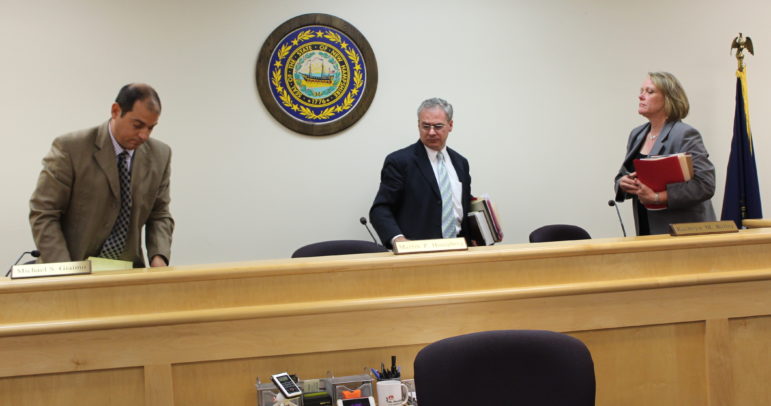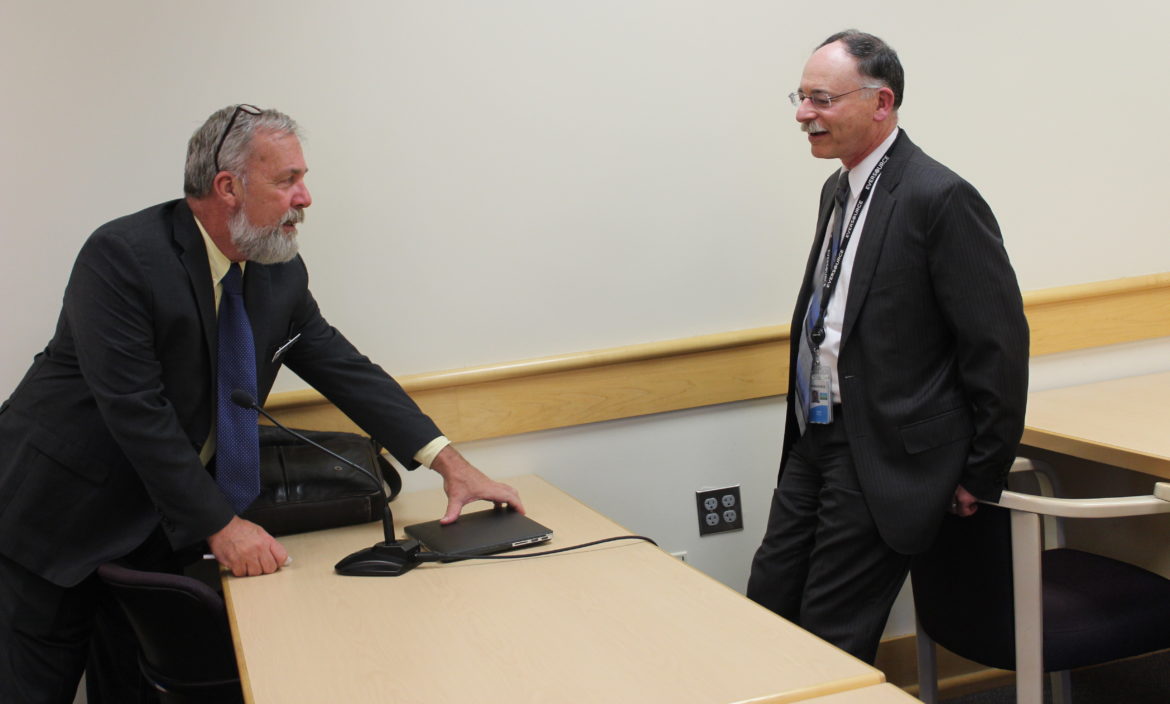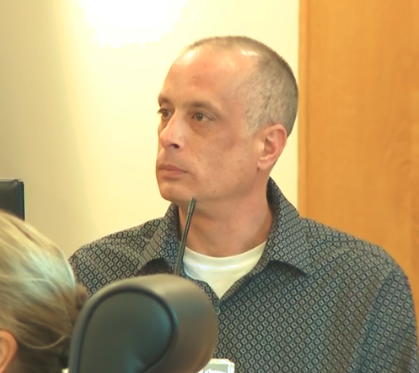By Nancy West
InDepthNH.org
CONCORD – Eversource attorney Robert A. Bersak says the Public Utilities Commission doesn’t have to rule on the largest energy company in New England’s acquisition of Aquarion Water – the largest private water company in the region – because the parties have already demonstrated it would have no adverse effect.
But state Rep. Renny Cushing, D-Hampton, argued that the PUC should make the decision and only allow the $1.675 billion acquisition to proceed if it is in the public good.
And that’s not possible, Cushing argued in a filing on Wednesday because Eversource has a conflict of interest.
As one of the polluters of the Coakley Landfill Superfund Site decades ago, Eversource is responsible for just less than 2 percent of the cleanup. And the landfill is threatening the water supply in the Seacoast towns Aquarion serves as well as Aquarion wells, Cushing said.
Most of Cushing’s argument at the hearing at the PUC headquarters in Concord on Thursday focused on Eversource’s lack of experience in the water business and what the law requires of the PUC in such acquisitions.
Bersak argued that state law is in his favor. “Approval of this commission is not required because we’ve made detailed representations that the acquisition would not adversely affect rates, terms, services or operation of the Aquarion Water Company in this state…,” Bersak said.
At the Aug. 17 prehearing conference, it was noted that it would be hard to argue that the status quo has an adverse impact on ratepayers, Bersak said.
Therefore, Bersak said there’s no legal requirement to hold an adjudicative hearing.
Cushing, who is representing himself as an intervenor because he is an Aquarion customer said, “I maintain it is actually up to the commission to make a finding that the acquisition would be in the public good. I don’t believe the petitioners are able to demonstrate that.”
Cushing went on: “I don’t believe that the nature of this petition is such that it’s sufficient to just have no net harm. It has to be a finding in the public good.”
PUC Chairman Martin Honigberg asked Cushing for the statutory references to his argument and Commissioner Kathryn Bailey asked for and received assurances that it wouldn’t be ratepayers footing the bill.
Cushing said the Aquarion customers in Hampton, North Hampton and Rye shouldn’t be guinea pigs to Eversource’s entry into the water business.

Nancy West photo
PUC members from left, Michael Giaimo, Chairman Martin Honigberg and Kathryn Bailey at Thursday’s hearing about Eversource’s acquisition of AquarionWater.
“What is the argument that you want to make based on the information that’s in that filing,” Honigberg asked.
Cushing said: “The argument I want to make is it is not in the public good for the commission to approve this merger.”
Cushing said the commissioners are well aware of Eversource over the past few decades. He cited the requirement that Eversource divest itself of electric generation facilities. “That was presumably for the purpose of concentrating on its core mission of distribution and transmission of electricity,” Cushing said.
Three years ago, Eversource got approval for rate reduction bonds, he said. He called it a raid on the public treasury, adding some may have wrongly thought the money would be used to reduce electric rates for Eversource’s distribution and transmission customers.
Bersak disagreed with Cushing’s comments regarding restructuring. The purpose of restructuring, which was just argued two weeks ago to the state Supreme Court, was twofold, one to reduce rates to customers and implement a competitive electricity market, Bersak said.
He also disagreed with Cushing’s characterization of the bonds as a raid on the public treasury, although Cushing insisted that was an accurate representation.
After the hearing, Bersak pointed out that Eversource was responsible for a very small share of the Coakley cleanup, less than two percent.
And he said a report from the U.S. EPA just last week about Coakley said that groundwater monitoring wells are in place and data shows these wells indicate there are no human exposures to perfluorocarbons and other chemicals of concern at levels exceeding state or federal standards.
The commission took the matter under advisement and will decide whether an adjudicative hearing is needed or the merger can move ahead without its approval.





